When Katiso “KT” Molefe, alleged drug cartel boss walked out of the courtroom on October 10, 2023, the headline was clear: R400,000 bail granted by Judge Brad Wanless of the Johannesburg High Court. The decision overturned an earlier denial by the Alexandra Magistrate’s Court on August 20, 2023, and sent shockwaves through South Africa’s criminal‑justice circles. At stake was not only the fate of Molefe, 61, but also the lingering questions surrounding the November 20, 2022 murder of music producer Oupa John Sefoka – better known as DJ Sumbody – and his two bodyguards.
Background to the DJ Sumbody Murder
On the early morning of November 20, 2022, the intersection of Woodmead and Woodland Drives in Sandton, Johannesburg became a crime scene. DJ Sumbody, his bodyguard Sibusiso Mokoena and fellow guard Sandile Myeza were gunned down in a hail of bullets. The killings sent ripples through the city’s nightlife, and police linked the firearms to 18 other serious criminal cases tied to the so‑called “big five cartel.”
Investigators quickly zeroed in on Molefe, accusing him of orchestrating the hit. Over the following months, a string of charges piled up: murder, conspiracy to commit murder, illegal possession of firearms, fraud and extortion. By July 2023, Molefe was arrested and faced multiple murder cases, including the deaths of another DJ, known as Vintos Bhutlesi, and an engineer from the Free State.
The Bail Appeal Journey
After his arrest, Molefe applied for bail in the Alexandra Magistrate’s Court. The magistrate refused on August 20, 2023, citing the gravity of the offences and a fear that Molefe might interfere with witnesses. Undeterred, Molefe filed a leave‑to‑appeal application with the Gauteng High Court on October 2, 2023. The appeal forced a legal showdown between the prosecution, represented by the National Prosecuting Authority (NPA), and a defence that argued the bail denial rested on speculation rather than concrete evidence.
On the morning of October 10, 2023, Judge Wanless delivered his judgment. He noted, “Despite the serious nature of the alleged offences, there is no objective evidence before this court to show that should the appellant be granted bail, this would be in conflict with the provisions of the Criminal Procedure Act.” In his view, the State’s opposition “was not based on objective evidence” and the lower court had “misdirected itself”.
Court’s Reasoning and Strict Conditions
The High Court ordered Molefe to post R400,000 bail – a sum that sits on top of an earlier R100,000 bail granted by the High Court of South Africa, Gauteng Division, Pretoria under case number A112/2025. Alongside the financial figure, the judge imposed a tight web of conditions designed to curb any risk of witness tampering. Molefe must report to Morningside Police Station three times a week – Mondays, Wednesdays and Fridays – at both 06:00 and 18:00.
Geographically, his movements are limited to Gauteng province, though he may travel to Welkom in the Free State for business, provided he notifies the investigating officer in writing. Perhaps the most telling restriction is the explicit ban on any contact with state witnesses. “The appellant is barred from interacting with state witnesses,” the judgment reads, underscoring the court’s lingering concern about potential intimidation.
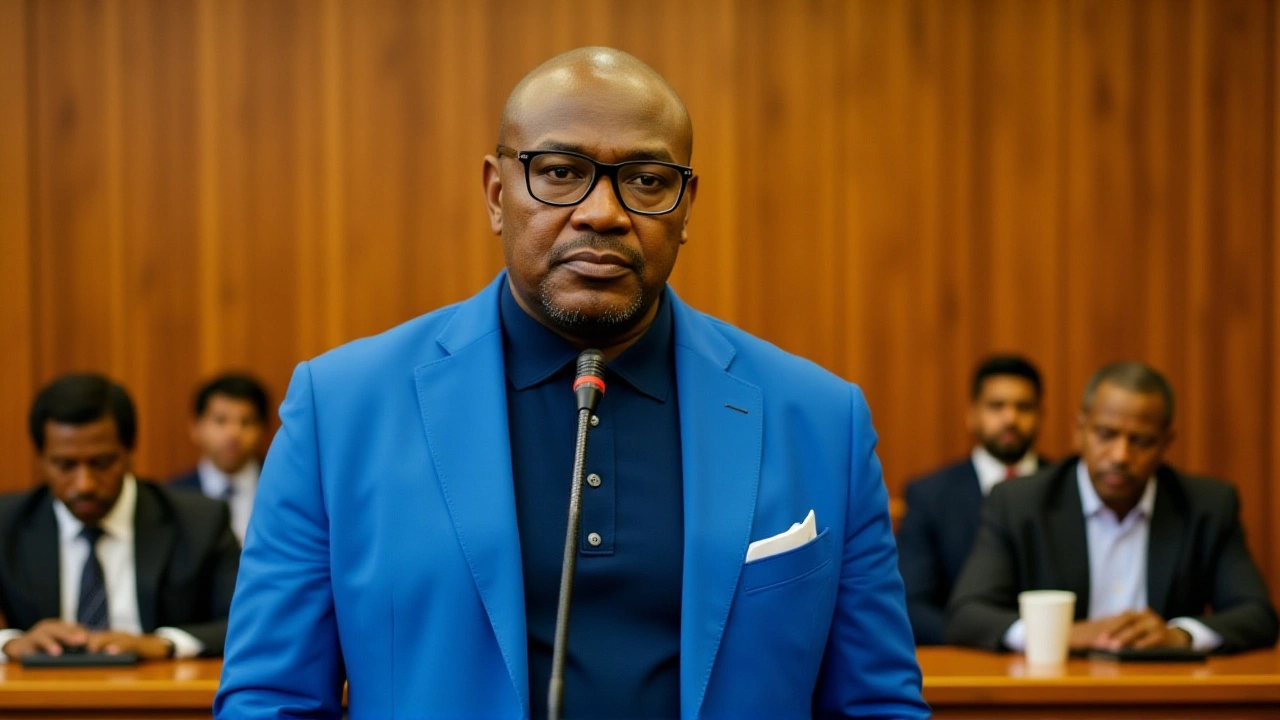
Reactions from the NPA and the Public
The NPA’s spokesperson, Kgabo Mahlaule, described the outcome as “disappointing” and admitted the authority “was not expecting such an outcome.” Yet he quickly added that the department “accepts the judgment and will be studying it further.” The reaction mirrors a broader public unease: many South Africans feel that high‑profile bail decisions can set dangerous precedents, especially when the accused face multiple murder charges.
Legal analysts, however, point out that the High Court’s ruling aligns with South African jurisprudence that requires concrete, not speculative, evidence to deny bail. “The decision underscores the principle that the presumption of innocence remains alive until proven otherwise,” said Advocate Thabo Mokoena, a criminal‑law expert at the University of the Witwatersrand.
Implications for South Africa’s Criminal Justice System
This case sits at the intersection of organized crime, celebrity murder and bail jurisprudence. If Molefe is eventually convicted, the trial will likely expose deeper links between the so‑called “big five cartel” and the entertainment industry. The bail decision, meanwhile, may prompt prosecutors to tighten the evidentiary bar when opposing bail in future high‑profile cases.
For the families of DJ Sumbody, Mokoena and Myeza, the ruling is a bittersweet development. While it ensures Molefe will remain under watchful eyes, it does little to bring closure. “We just want justice, not more legal gymnastics,” said a grieving friend who asked to remain anonymous.
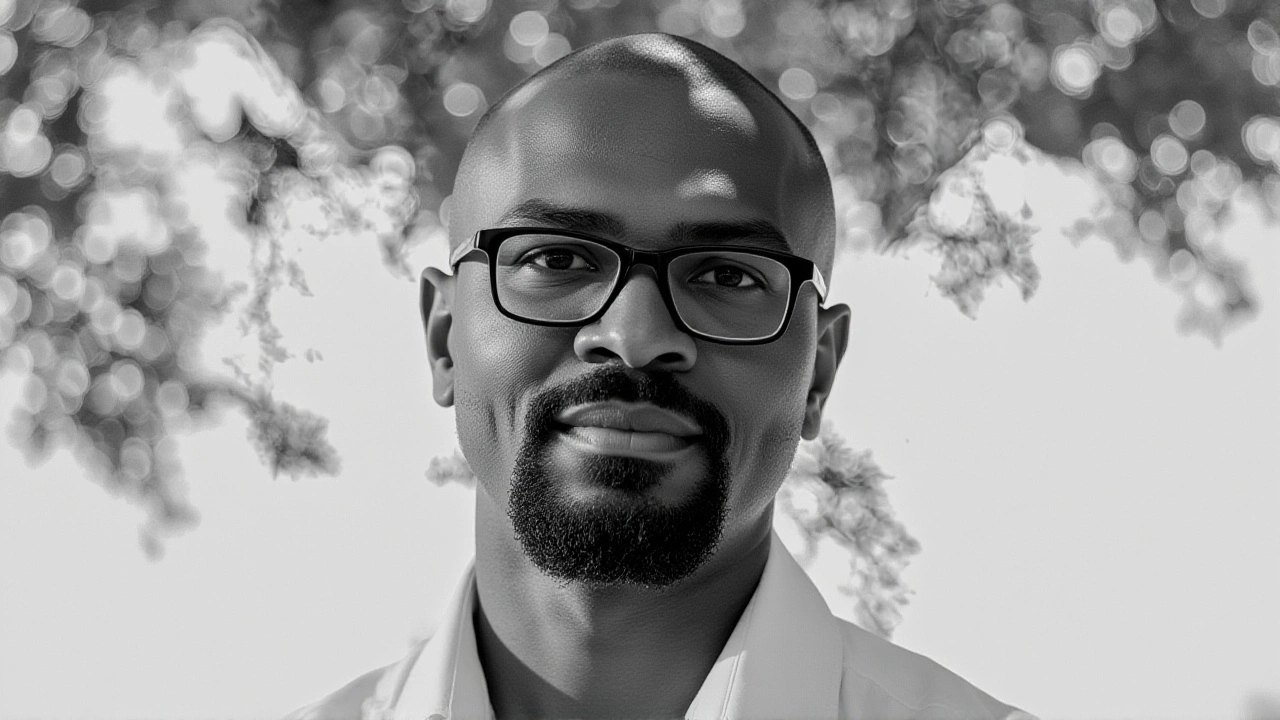
What Comes Next?
With bail secured, Molefe’s next court appearance is scheduled for early 2024. The prosecution is expected to present additional forensic evidence linking the firearms used in the Sandton shooting to other cartel‑related crimes. Meanwhile, the NPA will likely file an appeal on the bail amount or conditions, given its expressed disappointment.
Regardless of the legal twists, the case remains a stark reminder of how organized crime can intersect with popular culture, and how the courts balance public safety with the rights of the accused.
Frequently Asked Questions
Why did the High Court overturn the magistrate’s bail denial?
Judge Wanless found the magistrate’s refusal was based on speculation, not concrete evidence, that Molefe would interfere with witnesses or pose a public‑safety risk. South African law requires objective proof to deny bail.
What are the main conditions of Molefe’s R400,000 bail?
He must report to Morningside Police Station three times a week, stay within Gauteng province, obtain written permission to travel to Welkom for business, and is barred from contacting any state witnesses.
How does this case affect the broader fight against organized crime in South Africa?
The trial could expose links between the “big five cartel” and high‑profile entertainment figures, prompting law‑enforcement to allocate more resources to dismantle these networks and possibly tighten bail standards in similar cases.
What was the reaction of the National Prosecuting Authority to the bail decision?
Spokesperson Kgabo Mahlaule called the ruling “disappointing” and said the NPA was not expecting it, but the agency said it would accept the judgment and review the decision for possible appeal.
When is Molefe’s next court appearance expected?
His next appearance is slated for early 2024, where the prosecution plans to present additional forensic evidence linking the Sandton shooting firearms to other cartel‑related crimes.

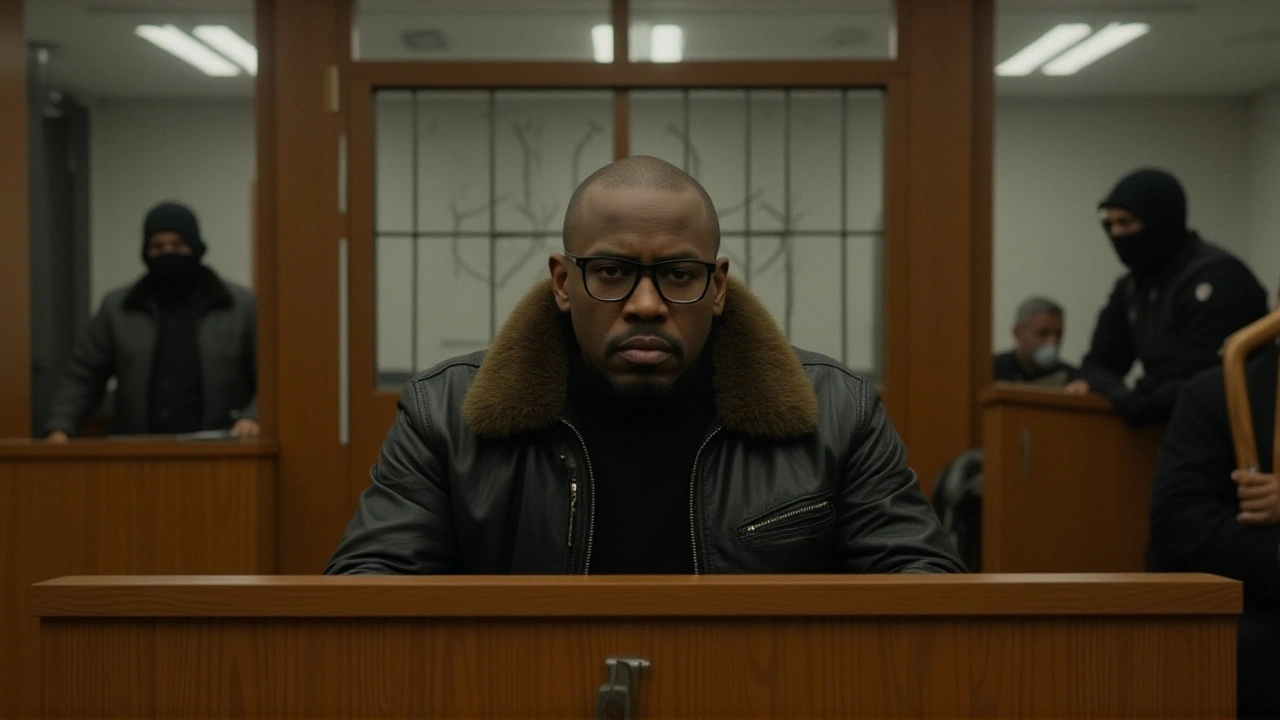



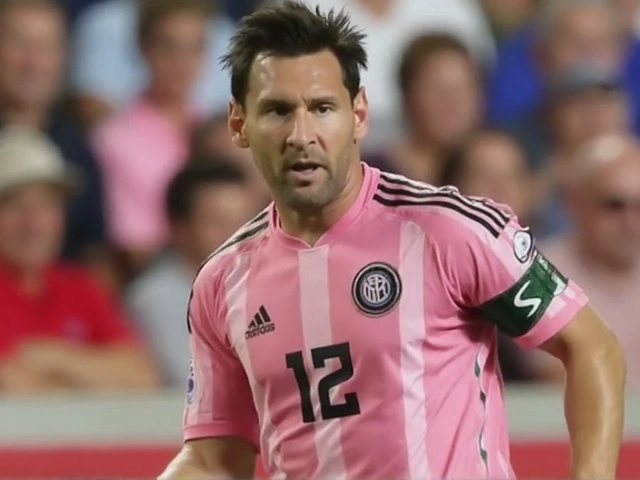
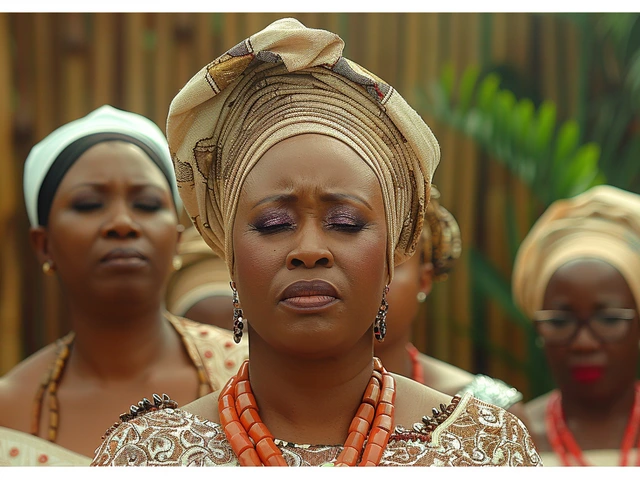
Jensen Santillan October 11, 2025
One must appreciate the jurisprudential nuance embedded in Judge Wanless's decision. The High Court did not merely toss a cheque at the accused; it articulated a doctrinal rebuke of speculative bail denials. By emphasizing the absence of objective evidence, the court reaffirmed the constitutional presumption of innocence. This is not a free pass for Molefe, but a reminder that the state bears the burden of proof. Moreover, the stringent reporting schedule-twice daily, three times a week-signals a calibrated approach to public safety. Critics who brand this as leniency overlook the layered conditions that tether Molefe's movements. The geographic restriction to Gauteng, with a controlled exception for Welkom, curtails any sprawling influence. The explicit prohibition on contacting state witnesses addresses the core fear of intimidation. In the broader South African context, this ruling may temper future prosecutorial overreach in high‑profile bail hearings. Ultimately, the decision walks a tightrope between safeguarding societal interests and preserving individual liberties.
Mike Laidman October 22, 2025
This ruling is unexpected
J T November 3, 2025
R400k bail? Seriously?? 😂
A Lina November 14, 2025
The appellate judgment hinges on the substantive evidentiary threshold required to curtail liberty. By invoking the Criminal Procedure Act, the court foregrounds statutory compliance over discretionary harshness. The prohibition on witness contact functions as a prophylactic measure against potential coercion. Nonetheless, the bail sum remains disproportionately high relative to comparable precedents, raising questions about fiscal deterrence versus equitable treatment. In sum, the ruling synthesizes procedural rigor with pragmatic safeguards, albeit not without fiscal controversy.
Virginia Balseiro November 26, 2025
Wow, this case is a roller‑coaster of drama and legal gymnastics! The bail amount feels like a Hollywood plot twist, and the reporting schedule is practically a reality‑TV schedule. Yet, we can’t forget the victims’ families who are hanging on for real justice. Let’s hope the next court date brings some answers and not just more paperwork. Keep the conversation alive, folks – this is bigger than any one person.
Jared Mulconry December 7, 2025
I hear the tension between public safety and the right to be presumed innocent. While the bail terms are strict, they do keep Molefe under close watch. It’s a balanced approach that respects due process. Let’s see how the next hearings unfold.
Brandon Rosso December 19, 2025
It is encouraging to observe that the judiciary maintains fidelity to constitutional principles, even under pressure. The measured bail conditions exemplify a thoughtful calibration of risk and rights. I am optimistic that the forthcoming trial will illuminate the truth while upholding fairness. The legal community should view this as a constructive precedent.
Tracee Dunblazier December 31, 2025
While the decision appears measured, one cannot help but note the potential perception of leniency. The court’s language is precise, yet the public may view the bail sum as overly generous. Nonetheless, the procedural safeguards remain intact.
Edward Garza January 11, 2026
The bail amount seems excessive given the pending charges.
Allen Rodi January 23, 2026
For anyone not familiar with South African bail law, the presumption of innocence is a core safeguard. The High Court’s decision reinforces that the state must present concrete evidence to deny bail. The reporting requirements, though strict, are designed to mitigate any risk of witness tampering. Keep an eye on the upcoming forensic evidence presentations; they’ll be pivotal.
Jody Webster February 3, 2026
Honestly, the whole bail saga, it's like, you know, the court, they set a massive R400k, which, frankly, could be seen as, um, over the top, especially considering, like, the multiple murder charges, and, well, the public might think, "why so high?" Yet, the judge also slapped on those crazy reporting times, three days a week, twice a day – that's, uh, pretty intense, don't you think?,???
Steve Goodger February 15, 2026
Friends, let us take a broader view of this matter, recognizing that the rule of law thrives on balance and nuance. The High Court, in its wisdom, chose to impose a substantial bail amount, not as a punitive measure, but as a safeguard to ensure that the accused remains within the jurisdiction of the law while awaiting trial. This decision reflects a deep respect for the constitutional guarantee that every individual is presumed innocent until proven guilty beyond a reasonable doubt. At the same time, the court acknowledged the gravity of the allegations – multiple murders linked to an alleged cartel – and thus instituted strict reporting requirements. By mandating appearances at Morningside Police Station three times a week, both morning and evening, the judiciary creates a transparent mechanism for monitoring the accused. Moreover, limiting Molefe’s movements to Gauteng, with a controlled exception for Welkom, demonstrates a targeted approach to risk mitigation. The prohibition on contacting state witnesses is a vital shield against potential intimidation, preserving the integrity of the forthcoming trial. While some may view the R400,000 figure as steep, it is calibrated to reflect both the seriousness of the charges and the necessity for public confidence in the justice system. In essence, this ruling does not abandon the principle of liberty; rather, it tempers it with responsibility. Let us, as a community, support the due process while remembering the victims whose families deserve closure. Ultimately, the courts are striving to uphold both safety and fairness, and this case serves as a reminder of the delicate equilibrium we must maintain. Stay engaged, stay informed, and advocate for a system that respects both rights and responsibilities.
johnson ndiritu February 26, 2026
Justice must never be compromised by wealth or influence. 🛑 Granting bail at such a high figure sends a dangerous message that money can buy freedom. ⚖️ The state should prioritize the victims and their families over procedural niceties. 🙏 Let the courts hold the accused accountable, no matter the cost.